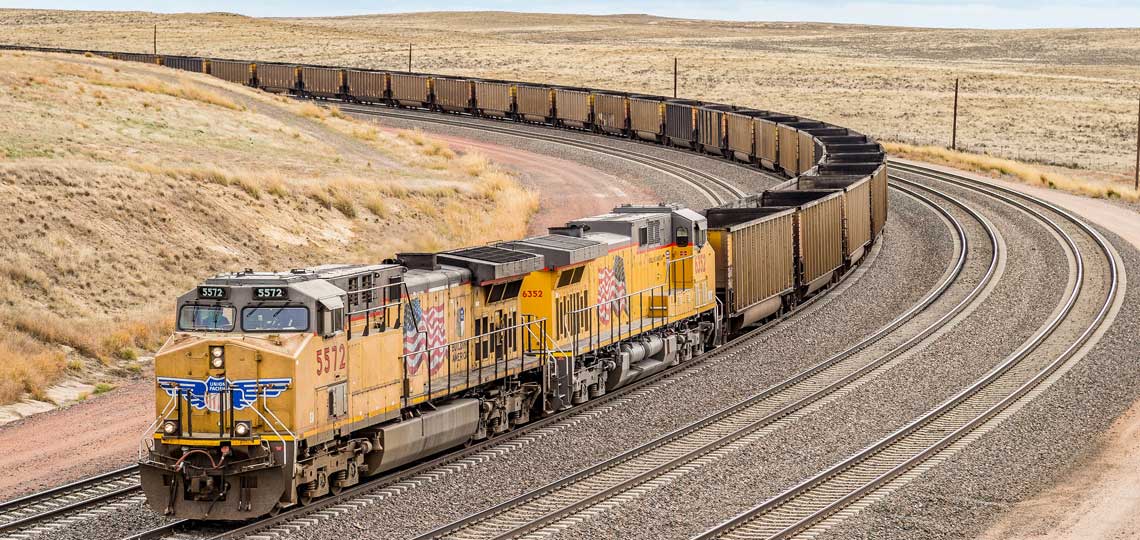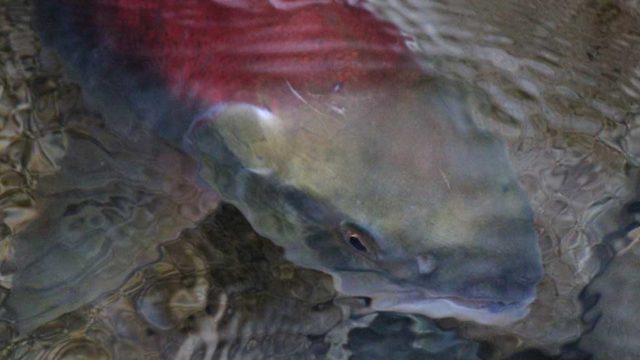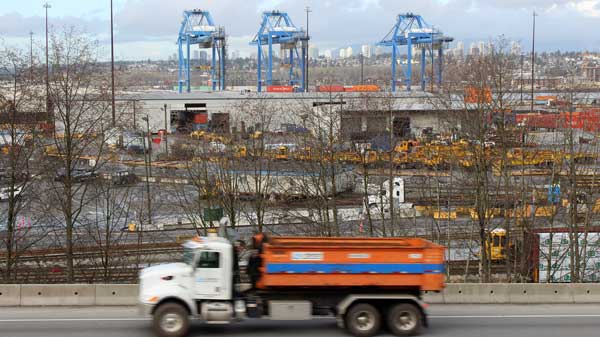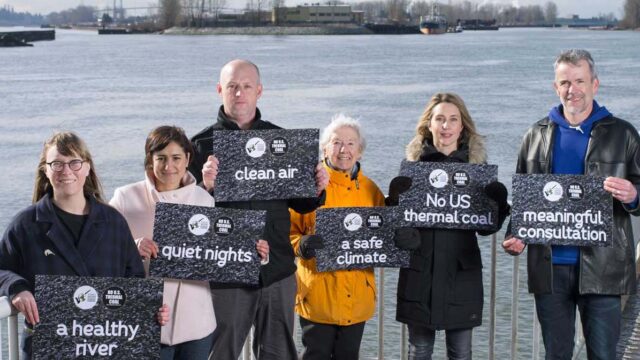There is a famous quotation often attributed to Margaret Mead that goes, “Never doubt that a small group of thoughtful, committed citizens can change the world. Indeed, it’s the only thing that ever has.”
The grassroots group Communities and Coal is proof of this.
When the Fraser Surrey Docks project threatened the health and safety of communities in B.C.’s Lower Mainland — and the climate —Communities and Coal stood up to the proposed coal transfer facility.
Members of the organization coordinated town halls, attended protests, and encouraged thousands of people to share their concerns about the project during a public comment period. With Ecojustice’s help, Communities and Coal and local residents Paula Williams and Christine Dujmovich also took their fight to court.
Against many odds, Communities and Coal brought people from across the Lower Mainland together and generated an impressive, sustained community opposition to this project, both on the ground and in the courts.
In February 2019, after a gritty, years-long fight, the Vancouver Fraser Port Authority decided to pull the permit for the Fraser-Surrey Docks coal project.
Only a couple months later, the Federal Court of Appeal ruled Ecojustice’s ongoing legal case moot. Here’s a look at what these outcomes mean, both in a legal sense and for the community:
The court case – beginning to end
On behalf of our clients, Ecojustice lawyers launched a case against the Fraser Surrey Docks project in September 2014.
Over the next four and a half years, the case grew into one of Ecojustice’s most hard-fought files. Some important points in the proceedings included:
- Between 2015 and 2016, the port made every effort to withhold key documents from Ecojustice’s clients. After making several motions in court, Ecojustice lawyers were able to persuade the court that they was entitled to receive those documents.
- In April 2016, Ecojustice fought attempts from both the Port Authority and Fraser Surrey Docks have the case dismissed. Ecojustice won and the case proceeded to a full hearing.
- In May 2017, Ecojustice lawyers appeared in the Federal Court to make the case for why the Port Authority’s approval of the project should be struck down
- In January 2018, the court issued a disappointing decision to dismiss the case. A month later, Ecojustice launched an appeal on behalf of its clients.
- In November 2018, Ecojustice lawyers appeared in the Federal Court of Appeal to argue that the Port Authority’s approval of the project gave rise to an apprehension of bias and should be struck down.
Then, in February 2019, there was an unexpected development: The Vancouver Fraser Port Authority pulled the permit for the coal facility. After nearly five years, one appeal, and thousands of hours of work, the project was essentially dead.
As a result, the Federal Court of Appeal declared Ecojustice’s appeal moot in April 2019. In the decision, the judge wrote, “It is clear that there is no longer an adversarial relationship since the appellants have achieved the result they were seeking.” In other words, if the project is dead, there’s no point in continuing this case.
Unfortunately, the ruling meant the court did not weigh and decide on important arguments that Ecojustice brought forward.
Ecojustice lawyers had argued that conduct of the port and its officers gave rise to a reasonable apprehension of bias when it greenlighted the coal project — in part because the port’s employee bonus scheme offered significant financial incentives for executives to move the project forward despite concerns from local residents.
A ruling could have clarified whether or not a project can go ahead when the people charged with approving it appear to be biased. Without a ruling in this case, settling that question will have to wait for another day.
A win is a win
While Ecojustice would have welcomed a decisive win in court, it’s important to celebrate the incredible victory that Ecojustice clients Paula Williams, Christine Dujmovich, and Communities and Coal helped secure on the ground.
In the end, it was the port that pulled the plug on the project. But there’s no denying that the steady community opposition to the coal facility played a role in forcing its hand.
As Ecojustice lawyer Fraser Thomson has said, the project’s downfall is a testament to what can be achieved when community members come together to protect the places where they live, work, and play.
Ecojustice is Canada’s largest environmental law charity and we represent all our clients free of charge. This means that we are in a unique position to work with individuals and grassroots groups that wouldn’t otherwise be able to afford the caliber of legal expertise and representation that Ecojustice lawyers offer. As a result, Ecojustice staff and lawyers have the opportunity to work with and learn from incredible groups and individuals, including the clients on this coal case.
Of course, none of this would be possible without the generous support of Ecojustice’s supporters.
When we come together to fight, as Communities and Coal, Williams and Dujmovich did for their community, we can achieve extraordinary things. Thank you for helping Ecojustice — and our clients — fight for a safe climate and a healthy environment for all.




